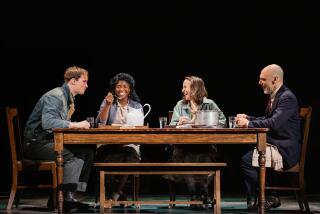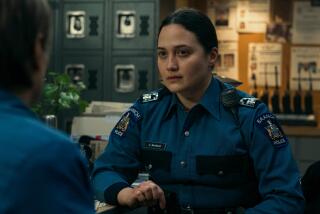Review: ‘Sullivan’s Crossing’ on the CW is a pleasant import from the makers of ‘Virgin River’
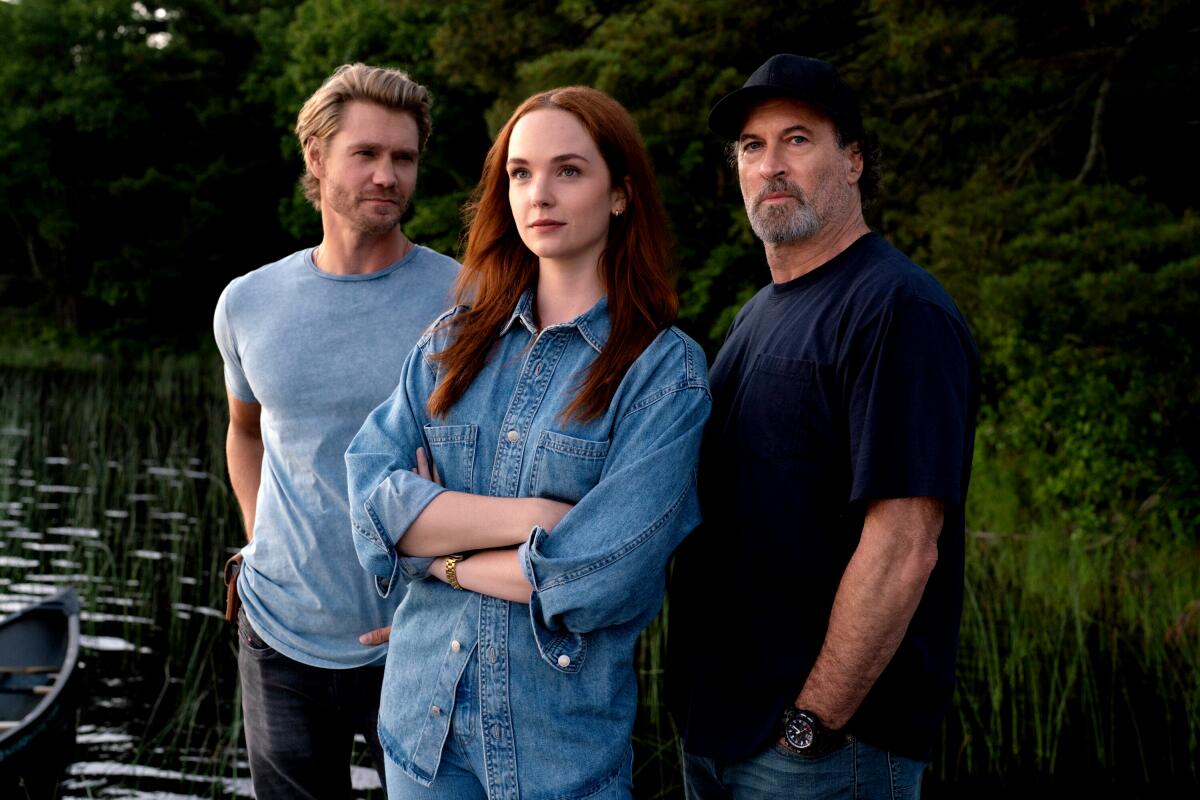
With Hollywood scribes back at their keyboards, readying things for actors to say when their own strike ends, possibly by the time you read this, it feels marginally less deplorable that, in order to preserve an appearance of a normal fall season, content purveyors are presenting imported material as if it were something they’d cooked up themselves.
That’s not to denigrate the content itself, which is made by people as committed to their work as their American cousins and as capable of greatness (or, for that matter, ordinariness). And when it comes to Canada (home to the invaluable “Schitt’s Creek,” “Slings and Arrows” and “High School”), only a footstep away from us, their show business has long been entwined, often unrecognizably, with ours.
To wit: The Canadian series “Sullivan’s Crossing,” which begins Wednesday on the CW, which is already running a trio of Canadian comedies on Monday nights. It’s based on a series of books by American romance novelist Robyn Carr, whose writing is also the foundation of Netflix’s “Virgin River” (set in Northern California but filmed in British Columbia). Adapted by “Virgin River” (Canadian) executive producer Roma Roth, its largely Canadian cast (including “Virgin River” vets Lynda Boyd and Lauren Hammersley) features Americans Scott Patterson, who was Luke on “The Gilmore Girls,” and Chad Michael Murray, who was Lucas on “One Tree Hill,” as well as a recurring player in early “Gilmore Girls” seasons). And the action of Carr’s novels has been transferred from the American Rockies to the rocky coast of Nova Scotia, which, if nothing else, makes it visually distinct from “Virgin River” and is very pretty to look at.
In other respects, it is less distinct, which will certainly be part of its attraction. As in the earlier show, the story concerns a medical professional who moves from the problematic city to the differently problematic but life-affirming countryside. The insignificant difference is that, here, officially lauded “rising star” neurosurgeon Maggie Sullivan (Morgan Kohan, from Hallmark’s “When Hope Calls” — an American show, filmed in Canada and based on Canadian books — is not escaping to a new place but escaping back to an old one, the campground her family has run for generations, currently overseen by her father, Sully (Patterson). A legal problem not of her making has driven her northward.
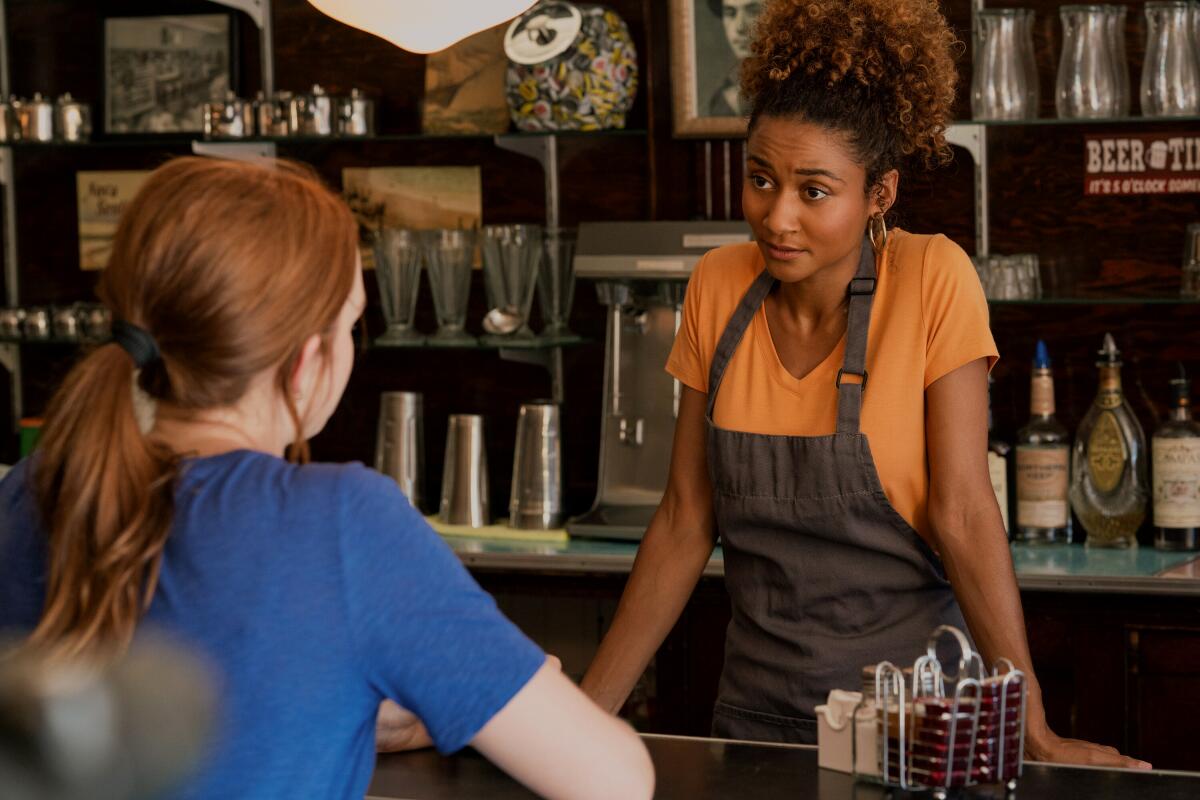
As a young girl, Maggie was spirited away to Boston — not just the city, mind you, but a city in another country — by her mother (Boyd), who remarried into money and who thinks, per your expectations, that Maggie should be in America earning plaudits and greenbacks rather than aimlessly hanging about Canada with her kinda grumpy, cash-strapped, stubborn (but locally beloved) old man, one of those characters whose foregrounded refusal to take care of himself suggests crisis ahead.
Home being aphoristically the place when you go there they have to take you in, Sully does, but it’s an uneasy reunion. Maggie’s old best friend, Sydney (Lindura), who has returned herself after a brief career in modeling (“Turns out that dating your manager when you’re a model is not a good career move.”) to help her widower brother, Rob (Reid Price), wonders why Maggie hasn’t called her, like, in forever. But it won’t take long for them to become new best old friends.
The notion that country life and values are underrepresented is one of the Trump era’s most formidable pieces of received wisdom. But the claim doesn’t hold up.
And barely has Maggie put down her bags in her old room when she meets the fellow fate has created her for — you can tell this, because their first encounter is antagonistic — “mystery man” Cal (Murray), who just sort of does stuff around the place. One mystery is what Cal is short for, which Maggie keeps trying to guess, like the miller’s daughter and Rumpelstiltskin. Soon they will be standing closer together than the shot requires.
Like practically every actor who might be required to remove his shirt onscreen nowadays, or at least wear a tight-fitting tee, Murray has bulked up, into the sort of beefcake familiar from the romance novel covers Fabio used to pose for — oh, young people, must I school you in Fabio? — but with shorter hair. (It is still long enough to sweep back dramatically from his brow.) Such manicured buffness may feel out of a tune with a character we are supposed to admire for his rustic lack of self-regard, but it does of course suit the genre to a … tight-fitting T, and it creates contrast with Kohan’s waifish silhouette.
Somewhere down the road from the campground, at which things are falling apart a little — no hot water, fridge on the fritz — is the adorable town of Timberlake, where we find shops and sidewalks and the local diner, run by Rob, which after dark becomes the local bar, a place for karaoke, slow dancing and an occasional unpleasant encounter with tourists less attuned to the area’s peaceful, easy feeling; this is a place of diversity, tolerance and caring, not parochialism and suspicion.
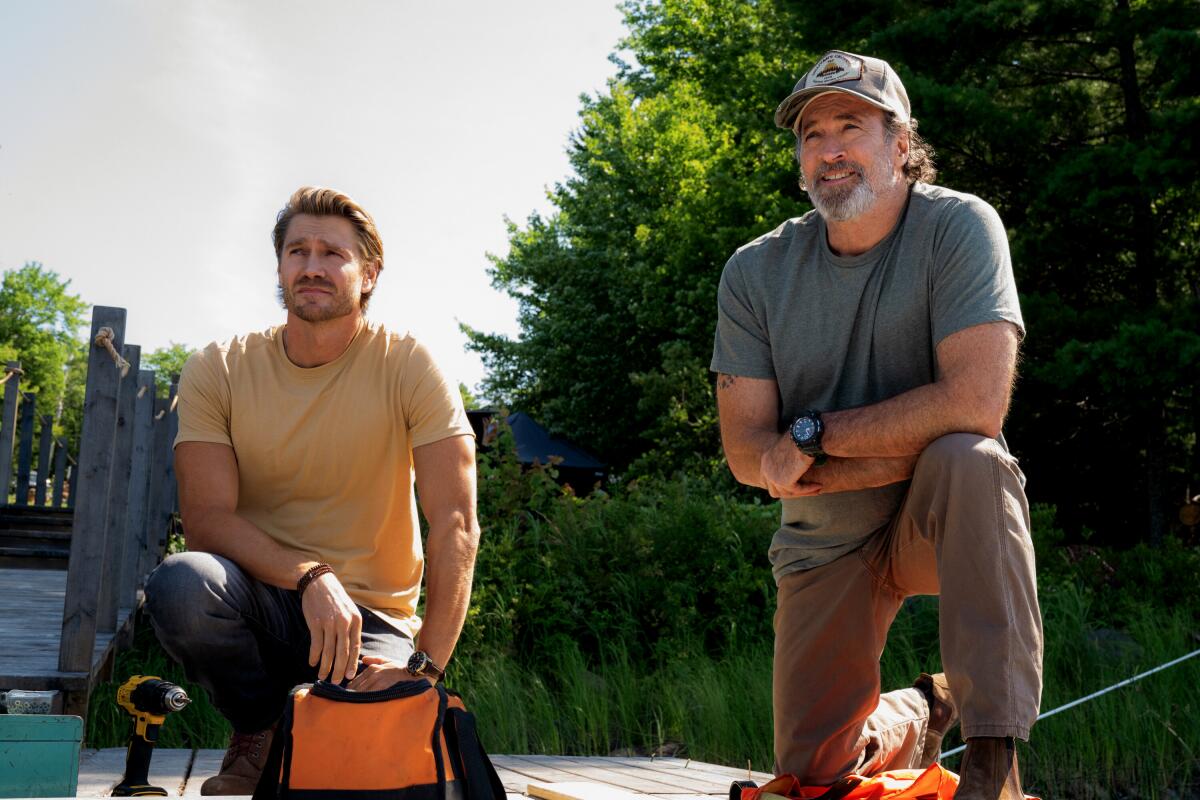
Among the citizenry are Connie (Hammersley), who runs the local fire department and search and rescue team; Rafe (Dakota Taylor), who helps her out and is fireman-hot (one would expect no less of an actor named Dakota Taylor); and Connie’s son Jackson (T. Thomason), introduced as the resident “climbing expert.” Seemingly interested in Cal is Lola (Amalia Williamson), a sort of unofficial stepdaughter to Sully, whose grandfather suffers from dementia; Maggie, who goes into ER mode on first encountering him, suggests he be assessed for professional care. “We don’t just ship off our elderly into care homes,” barks Sully. “Have you really forgotten what it’s like here?”
Prime among them are Frank and Edna Cranebear (Tom Jackson and Andrea Menard), the series’ one completely functional couple — the series one couple, come to think of it — who run the campground’s store and snack bar. “You’re like a second mother to me,” Maggie tells Edna, but, emotionally speaking, she’s more like her first. “We could learn from Mother Earth,” Frank tells Sully, applying some Indigenous wisdom to his rupture with Maggie, “She nurtures and heals her children.” Frank, Irish mule that he is, remains unconvinced.
It’s in the series’ DNA to be a little cornball, and that there’s nothing overtly fancy or stylish in the production reflects the sort of nonliterary literature from which it springs. Apart from the breathy finger-picked guitar folk pop that fills up the soundtrack, which I found myself muting, and some overenthusiastic dialogue forced out of the mouths of babes (e.g., “Dad, Dad, Sully’s gonna make me a double cheeseburger with everything on it!” “Fire truck! Awesome!”), I found “Sullivan’s Crossing” perfectly pleasant and at least once surprising. To be sure, surprise is not what such shows are built on, soapy melodrama notwithstanding; they run on the fulfillment of expectations — there’s just enough tension to move things along, but not so much as to make you sweat or fret.
Still, trouble is standard for the form, as the episode titles indicate: “Homewrecker,” “Rock and a Hard Place,” “Boiling Point,” “Sins of the Father,” “Pressure Drop” — probably nothing to do with Toots or the Clash. Well, there’s no making up without breaking up. Apart from those exclaiming kids, the cast underplays the material, which keeps things comfortable, as one familiar sort of crisis follows the last.
More to Read
The complete guide to home viewing
Get Screen Gab for everything about the TV shows and streaming movies everyone’s talking about.
You may occasionally receive promotional content from the Los Angeles Times.

